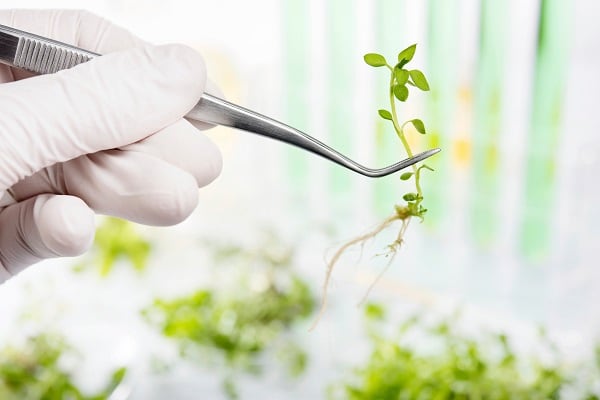Of the 12 varieties tested for beta carotene content, taste and cultivation qualities, the Impilo and Purple Sunset varieties showed most promise.
A 4.4-ounce (124.7g) serving of the Impilo sweet potato provided 113% of the daily vitamin A requirement of a 4-8 year old, while Purple Sunset provided 261%.
A third variety – Bophelo – had higher beta-carotene than Impilo and fared better in taste tests but the researchers planned further breeding to improve its resistance to different weather conditions.
Researchers from the University of the Free State, Agricultural Research Council (ARC) and the Roodeplaat Vegetable and Ornamental Plant Institute in South Africa created the varieties using conventional breeding techniques –something one of the authors, Professor Maryke Labuschagne, said would hold added appeal in largely anti-GM Africa.

The sweet potato already contains high levels of beta-carotene, which the body converts to vitamin A, but these new varieties used genetic diversity screening and cross-breeding to up content.
“In Africa there is very strong resistance to GM [genetically modified] food, and there is almost no legislation on GM in most African countries, which effectively prevents any research on GM crops in these countries. Therefore most of the current research on bio fortification is done using conventional breeding techniques,” Professor Labuschagnetold us.
Sweet potatoes are a staple part of the South African diet. She said this meant these varieties could have a big impact on vitamin A deficiency, which was “rampant” in rural areas.
According to the World Health Organisation (WHO), vitamin A deficiency is the leading cause of preventable blindness in children and increases the risk of disease and death from severe infections. In pregnant women the deficiency causes night blindness and may increase the risk of maternal mortality.
An estimated 250 million preschool children are vitamin A deficient, with about 250,000 to 500,000 becoming blind every year and half of these dying within 12 months of losing their sight.
Discussing strategies for the issue, the WHO said: “Food fortification takes over where supplementation leaves off. Food fortification, for example sugar in Guatemala, maintains vitamin A status, especially for high-risk groups and needy families.”
The scientists behind this latest research, published in the journal Crop Science, said they would now be seeking international development funding to set up agro-processing units and increase local use of the varieties through flour. Research published back in 2011 tipped sweet potato flour as a promising strategy to tackle vitamin A deficiency.
In other areas in Africa there has been research on beta carotene- enriched maize, cassava and plaintain, all using conventional breeding techniques.
Elsewhere GM solutions have taken centre stage. Researchers in the Philippines, as part of PhilRice and backed by the industry-funded Golden Rice Humanitarian Board, have been field trialling so called GM golden rice. The rice was engineered so that the beta carotene already naturally occurring in the plant’s inedible leaves also occurred in its grains. The project has attracted negative attention from anti-GM NGOs like Greenpeace.
Source: Crop Science
Vol. 55 No. 4, p. 1585-1595, doi:10.2135/cropsci2014.09.0664
“Multienvironment Performance of New Orange-Fleshed Sweetpotato Cultivars in South Africa”
Authors: S. M. Laurie, M. Booyse, M. T. Labuschagne and M. M. Greyling
